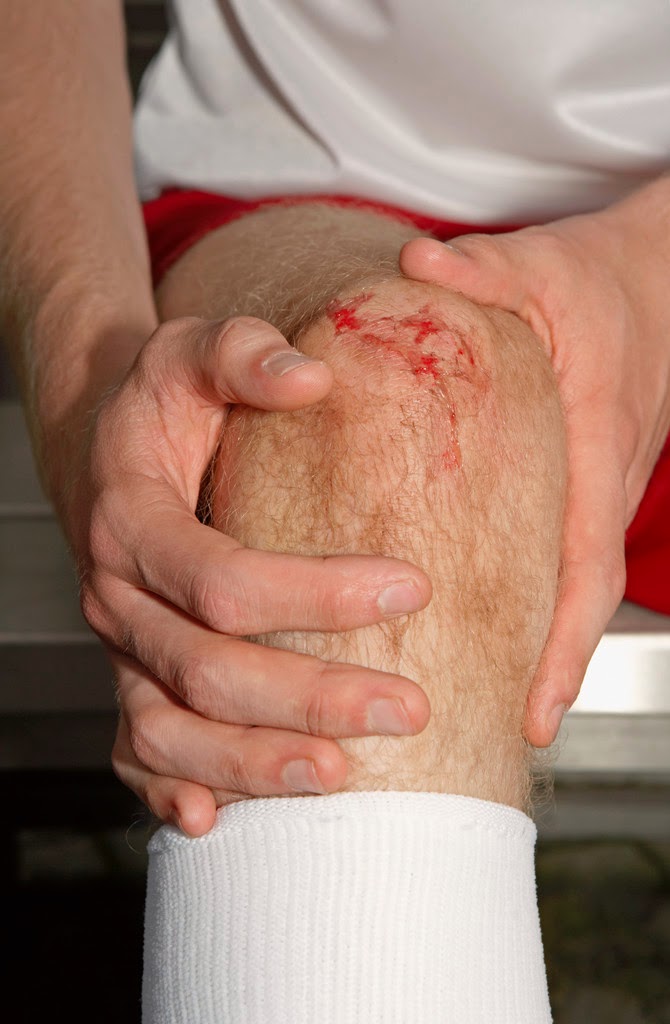Falling for MS
Let’s
cut right to the chase. If the nursery rhyme “Ring Around the Rosie” were to
ever become an Olympic sport, folks with multiple sclerosis would be destined
for glory. Not only do we “all fall down,” we fall down with such regularity
that people might mistake us for soccer players. How to tell the difference? When
we are writhing in pain, we’re typically not feigning injury (unless the cooler
full of beer is just too long of a walk and you are trying to enlist spousal
sympathy—a tactic that rarely works and I speak from experience).
It
might seem obvious that researchers, in a large meta-analysis of nearly 600 MSers in four countries, concluded that folks with this disease are at a “high
risk of falls and there are important associations between falls and
MS-associated disability, gender and age.” Duh. Numb feet, wonky balance,
rubber legs, bad eyesight, and a bumbly brain tend to influence such things.
But if you read the full study, a more interesting picture appears. Permit me
not to mince words: we largely are a stubborn group, with easily bruised egos,
intent on not looking disabled.
Looking
through the data, researchers zeroed in on one group in particular: the
tweeners, those who are starting to need walking assistance but technically can
go without. "It suggests that fall risk peaks at an EDSS score of 4.0 (when
quantifiable mobility limitations are first acknowledged) and 6.0 (when a
walking aid is required)." Do you wall and furniture surf, smudging up the
house like a three-year-old? You are a tweener. Do you avoid taking a cane to
work to so you won’t be known as the token disabled person? Yup, you are a
tweener. Does the thought of using a walker mortify you, yet deep down you know
it would probably help? Bingo: tweener.
And
parsing the data further only reinforces what we already know. Ego plays a
large role in our will to appear healthy and able-bodied. It's not the old
geezers who are concerned about how they look in public (most already crossed
that hurdle when they started wearing black socks with shorts), it’s the
youngins. "Sustaining multiple falls was associated with younger age and
the relative rate of falls was higher for younger participants."
Predictably, gender matters, too. Who traditionally has the most easily bruised
ego? Dudes. "In our sample the men had a significantly higher fall rate
than the women, suggesting that men with MS who fall are at risk for frequent
falls."
These
days I rarely fall. After breaking my leg while trying to show off, ripping off a toenail days before an international trip, and clutching mostly naked men to
stay upright, I’ve learned my lesson. It’s just not worth it. I use every
available walking aid: canes, forearm crutches, walkers, trekking poles,
grocery carts, you name it. And I’m not shy about my disability. Hell, these
days I make restaurant reservations under the name Gimpy Dave. (“Did you say
your first name is Gimpy? Or is that your last name?”) I always get a great
seat and a big smile. Yeah, I may be gimpy. But nothing trips me up.




Comments
http://activemsers.wssnoc.net/forumdisplay.php?f=5
It sometimes surprises me when I trip and fall, because I didn't see it coming.. but yes, I keep falling too!
It really helps when I have something to hold on to! So I'm always clutching on to hand rails, walls, people etc. Glad I have company!
Anon2
But he is smarter now. He uses what ever gets him around - walker, forearm crutches and scooter. You may ask why all of a sudden. I tell you - he has hope again! We are in the middle of his HSCT treatment with Dr.Burt in Chicago. Using an aid is now not an issue anymore.